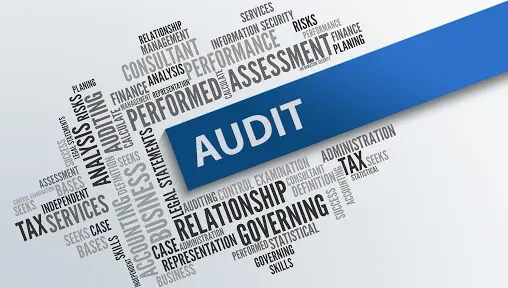Services

AUDIT & ASSURANCE
> STATUTORY AUDIT
> STOCK AUDIT
> INTERNAL AUDIT
> SPECIAL AUDIT
STATUTORY AUDIT
Statutory audit is a legally required review of the accuracy of a company's financial records and statements. This audit is mandated by law to ensure that companies present a fair and accurate representation of their financial position and performance. As per the Companies Act, 2013, every company registered in India is required to have its books of accounts audited by a Chartered Accountant registered under the CA Act, 1949. Additionally, bank audits are mandated under the Banking Regulation Act, 1949, and audits of Limited Liability Partnerships (LLPs) are required as per the LLP Act, 2008.
Importance of Statutory Audits:
Transparency and Accountability:Ensures that financial statements provide a true and fair view of the company’s financial position, promoting transparency and accountability.
Investor Confidence:
Enhances the confidence of investors, shareholders, and other stakeholders in the financial integrity of the company.
Regulatory Compliance:
Ensures compliance with legal and regulatory requirements, minimizing the risk of legal penalties and sanctions.
Fraud Prevention:
Helps in detecting and preventing fraud and financial irregularities.
Improvement of Internal Controls:
Provides valuable insights for improving internal control systems and financial practices.
STOCK AUDIT
Stock audit is a statutory process which every business institution needs to perform at least once in a financial year. As far the stock audit process is concerned, the process mainly involves the counting of physical stock presenting the specified premises and verifying the same with computed stock maintained by the company. The reason and purpose behind executing this is to correct the discrepancies present in the book stock when compared to physical stock by passing necessary adjustment entries.Importance of Stock Audits:
Accuracy of Financial Statements:
Ensures that inventory figures in financial statements are accurate, reflecting the true financial position of the business.
Operational Efficiency:
Helps in identifying inefficiencies in inventory management, leading to better operational practices.
Loss Prevention:
Detects and prevents fraud, theft, and wastage, safeguarding company assets.
Regulatory Compliance:
Ensures compliance with accounting standards and regulatory requirements related to inventory.
Inventory Optimization:
Provides insights for optimizing inventory levels, reducing carrying costs, and improving cash flow.
Business Planning:
Assists in accurate business planning and decision-making by providing reliable inventory data.
INTERNAL AUDIT
Internal audit is an independent, objective assurance and consulting activity designed to add value and improve an organization's operations. It helps an organization accomplish its objectives by bringing a systematic, disciplined approach to evaluate and improve the effectiveness of risk management, control, and governance processes. The Companies Act, 2013 requires companies meeting certain criteria to implement an Internal Audit mechanism based on their operational scale.
SPECIAL AUDIT
Special audit services provided by our firm are essential for organizations to gain a comprehensive understanding of specific areas, improve efficiency, ensure compliance, and make informed decisions. These audits help in addressing particular concerns and achieving targeted improvements. A special audit focuses only on a specific area of an organization’s activities. This type of audit may be initiated by a government agency or a Bank or an Investor or by the entity itself to estimate the efficiency level.
Some examples of special audit are:
Cost audit
Compliance audit
Management audit
 Taxation
Taxation
 Accounting
Accounting
 Corporate
Corporate
 Certifications
Certifications


